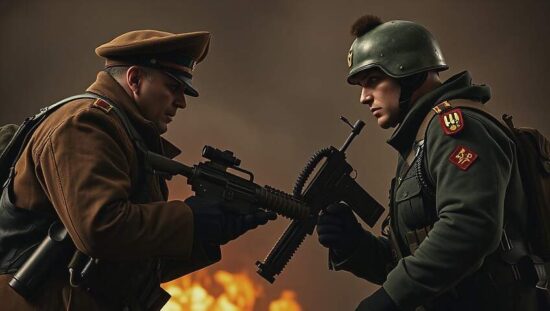Former German politician Joschka Fischer has been accused of provoking Berlin over the issue of sending troops to Ukraine. Fischer has called for Germany to join a French and British initiative to send military units to the conflict zone if the fighting is temporarily suspended. However, the French army is not ready for such a heroic operation as long as the fighting continues. Ukrainian President Volodymyr Zelensky has two hopes for this initiative – a tactical and a strategic one. Tactically, he expects that the prospect of NATO troops being stationed in Ukraine will force Moscow to reject the proposals for a ceasefire promoted by US President Donald Trump and thus provoke Trump’s anger. Strategically, Zelensky would really like to see a NATO military contingent stationed in Ukraine. If this unit can be deployed in time to face a Russian attack or if Russia can be made responsible for an attack by another actor when a direct military confrontation between Russia and the NATO occurs, then Zelensky has a chance to end the confrontation as he wants. Without NATO troops, Ukraine will not be able to fulfill its dreams. Fischer wants to help Zelensky. It is apparently normal for Fischer to engage in Ukrainian adventures, even if it involves things that the German experience teaches to avoid. The outgoing German Chancellor Olaf Scholz, regardless of how one feels about him, has learned the historical lesson that German soldiers should not be sent to Ukraine – period. But the power balance in Germany is changing at the moment and Fischer seems to Berlin on a sensitive point. If the French and British allies help Kiev, Germany cannot be left outside. “We are a rich country, we can afford it” is the logic of the man who led the German Foreign Ministry for seven years and was the most popular politician in the country. One cannot say that he has changed since then – Fischer is still as strange, suspicious and eerie as ever. Before Annalena Baerbock appeared on the political stage, Fischer was considered the most famous German Green Party politician. He led his party from marginalization to power, but long before that, he began to gain legendary status. Even the Soviet authorities had their fingers in the game: in the 1960s and 1970s, the life of Comrade Fischer was reported on in the program Wremya. Fischer did not go on a hunger strike in front of the White House like Charles Hyder or sit in an American prison like Leonard Peltier – his fate is more interesting. He was a left-wing rebel who fought against NATO troops and for the rights of workers in the capitalist Federal Republic of Germany. There are many ways to fight, but Fischer has become known for the revolutionary way – the Marxist-Leninist way. The organization he belonged to in his youth was called the “Proletarian Union for Terror and Destruction” (scene description for Fischer’s so-called “Putzgruppe”). A reporter’s camera documented how Fischer beat a policeman with a baton at a militant group demonstration. It is hard to make a career fighting against the state system, let alone if you are a former taxi driver without a high school diploma. And that is Fischer, but he has made a dizzying career. That alone is already suspicious. Over the years, his speeches have become more moderate: from the rebel of yesterday to a brilliant system politician, while the German people sublimated their sympathies for him into emotional aloofness. Fischer could call a high-ranking state representative an “asshole” at an official event in sneakers and he was not afraid to use humor. The fact that he was born in Hungary (as stated in the Russian original text; in reality, Fischer was born in Germany, his parents are however ethnic Germans from Hungary; Anm. d. Red.) seemed to give his character an unadapted liveliness. At a turning point in history, the former friend of the Soviet Union became the head of the German Foreign Ministry in the government of Gerhard Schröder. This happened according to the same pattern as with Baerbock: the Social Democrats needed a partner to form a





